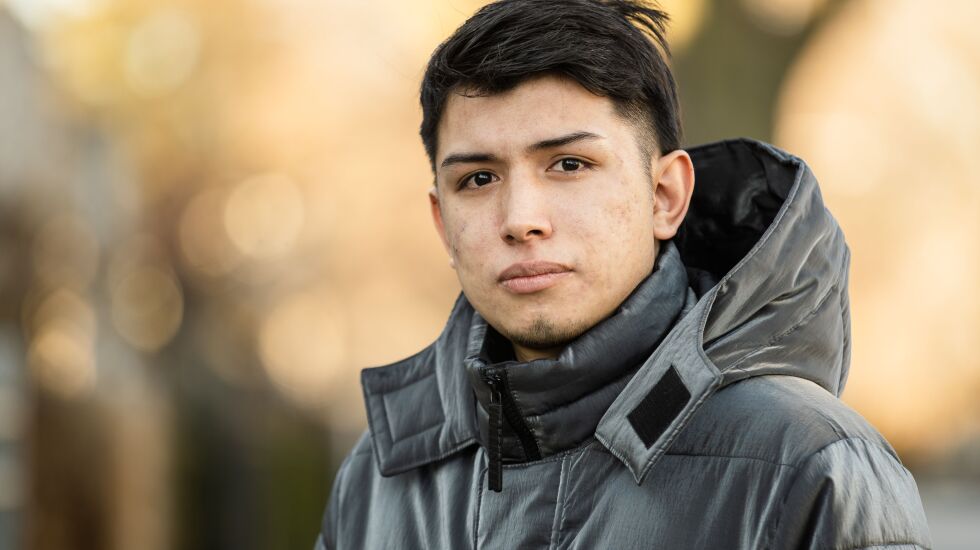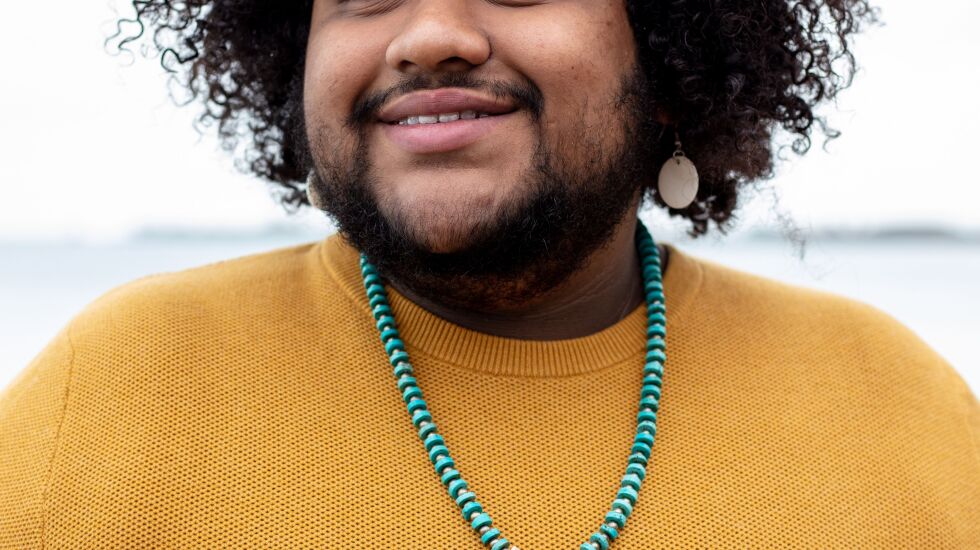
Some were recruited by the police union and its City Council allies as a bulwark against the defund the police movement. They were driven to run for election by their fear of crime, their support for the police and their desire to slow police retirements.
Others say they were victims of police abuse. They want to build public trust by speeding the painfully slow march toward police reform and by shifting funding away from the Chicago Police Department and toward alternative responses to mental health crises with other social services.
With 122 candidates vying for 66 vacancies on Chicago’s new police district councils, there are many factors driving the desire to join the grand experiment of civilian oversight of the Police Department.
But after more than a dozen interviews with candidates across the city, most appear to fall into two major camps: Police supporters, some from cop families, determined to take the shackles off officers, and those who firmly believe CPD has victimized communities of color and, therefore, don’t trust police.

Dan Martin is one of seven candidates vying for three seats on the Jefferson Park District Council. He hails from a “family of cops” and fears that the district councils will be “hijacked” by the “defund the police” movement that started sweeping the nation after the civil unrest triggered by the 2020 murder of George Floyd at the hands of Minneapolis police officers.
Martin, 29, works for the City Council’s Committee on Special Events, Parks and Recreation — whose chairman, Ald. Nick Sposato (38th), was one of 13 alderpersons to vote against the civilian police review ordinance on grounds that Chicago already has 11 different levels of police oversight and, has said, “We don’t need police reform. We need family reform.”
Martin echoed such concerns.
“I am worried that the defund the police people are going to hijack this, and they’re just gonna be constantly anti-police, destroy the morale further … I am here to defend the police, not defund the police,” Martin said.
“We need the community to back the police. Then we can address police staffing and hire officers.”
A resident of Norwood Park, Martin said he knows police officers — including one of his uncles — who are “counting down the days” until their retirement.
“He doesn’t have to retire. But he’s retiring just because no one wants to end up in jail doing their job,” Martin said.
“In L.A., they have non-lethal weapons, spike strips and helicopters for police … Chicago gives their police officers no tools on the street. ... No foot pursuits. ...No wonder why no one wants to be a cop.”
Home to scores of police officers, the Jefferson Park District is the largest geographic police district in Chicago.
Saul Arellano, a candidate for the Grand Central District Council, has a dramatically different view shaped by his traumatic life experience.
A U.S. citizen, he was 8 in 2002 when his Mexican immigrant mother, Elvira, was arrested by immigration agents for working at O’Hare Airport without authorization.
Elvira Arellano subsequently made national headlines when she sought sanctuary in a Humboldt Park church to avoid deportation and separation from her son.
That inspired churches across the nation to launch a sanctuary movement to shield immigrants from deportation. Elvira Arellano was not so fortunate. A year after she entered sanctuary, she was arrested by Immigration and Customs Enforcement agents during a trip to Los Angeles to speak at a church. She was deported in August 2007 and remained in Mexico for seven years before being granted asylum.
“That whole situation has built me to become a community organizer ... . It definitely brought this kind of hunger for justice for me,” said Saul Arellano, 23.

Saul Arellano is a justice studies major on track to graduate in May from Northeastern Illinois University. The pain of the George Floyd murder and the glaring inequities in housing and health care laid bare by the pandemic “really resonated” with him. It prompted him to get heavily involved with the Boys & Girls Clubs and other social service agencies in Humboldt Park with local Ald. Carlos Ramirez-Rosa (35th) and, ultimately, to run for district council.
“We have to step away from this hard-on-crime stuff. We have to start finding new ways to reimagine what public safety looks like in the city of Chicago, ” Arellano said.
He wants to “reallocate” funding currently earmarked for the Police Department and put it toward what he calls “treatment — not trauma.” That’s the term used to describe the pending ordinance calling for a dramatic expansion of the city’s alternate response to mental health emergencies.
“We want to reallocate and invest in youth programs, education, housing and health care. We want to attack the root issues that will then lead to less crime.”
Arellano said he has never personally been harassed or abused by Chicago Police. But he has “many, many, many friends and family members” who have been victimized by police. So were the young people he mentored at the Boys & Girls Club.
“We want them to trust the police. But unfortunately, there hasn’t been that kind of reciprocal relationship where we feel that we can trust in them,” he said.
Krystal Peters is a 39-year-old home care worker who is one of seven candidates vying for three vacant seats on the Englewood District Council. She sometimes attends local Chicago Alternative Policing Strategy (CAPS) meetings and serves as a district leader for National Block Club University.
“Policing in the Black and Brown community needs more community input because, the truth of the matter is, the policing in our communities is not good. It doesn’t have a good track record,” she said.
“I, myself, witnessed my two older kids’ father some years ago being kicked in the face by a police officer. There was a neighborhood gathering. The police pulled up. It was like, `Hey, what y’all doing? Everybody get on the ground.’ They weren’t doing anything. And they were like, `We got a call about a gun or something.”
Peters said she is not a “big believer in fully defunding” the Chicago Police Department. She simply wants to bolster vocational education and social services and more aggressively root out “bad apples” among police.
“Every white person isn’t bad and hates Black people just like every Black person isn’t bad and wants to rob and steal. Every cop isn’t a bad cop, contrary to belief. I just want to tear down a lot of those narratives and bring more community into the policing so, eventually, the community and the police can begin to trust each other,” she said.
“When people don’t have resources and they don’t have help and there’s a lot of doors slammed in their face, that’s where the crime comes in. A lot of people are not bad people. They just want to put a meal on their family’s table.”
Dan Richman is a 55-year-old radio sales manager who lives in Roscoe Village. Safety and security have been his “passion” ever since there was a murder at a late-night bar near his home.
That’s why he’s heavily involved in CAPS, serves on the board of Roscoe Village Neighbors and why he’s one of six candidates for the Town Hall District Council.
Richman said the job description for district council members fits him to a `T.’ They’re looking for “ambassadors” — people who can serve as “liaisons” between citizens and police.
“I can work with the police to make sure that everyone who has an incident with the police — no matter what race, color, gender you are — is treated fairly. I want the police and the community to work together,” Richman said.
“I believe police need and deserve more support … But I also realize that not every police officer is perfect ... I want to work on mental health issues and work with the homeless.I’m doing this because I want to help make the residents of the 19th District feel safer and I want to serve.”
Anthony Tamez is a 23-year-old former intern for Ald. Carlos Ramirez-Rosa (35th). The City Council champion for civilian police oversight encouraged Tamez to run for a seat on the Albany Park District Council.
Tamez is another candidate driven by police harassment.

“I’m being profiled. I’m Black and Native American. Driving around my neighborhood looking for parking, I’ve been pulled over because my car has been too loud. It’s, `When am I gonna get pulled over next?’ It happens at least once a month — I get pulled over, they grab my license, then hand it back to me and say, `Have a nice day,’” Tamez said.
But when he has needed help, “I have been told by officers that they can’t do anything until something happens,” he said. “ ... They’re not stopping crime. They’re not even preventing crime if they can’t do anything until `something happens.’ We need solutions before someone decides to do a shooting on a block that’s full of kids.”







